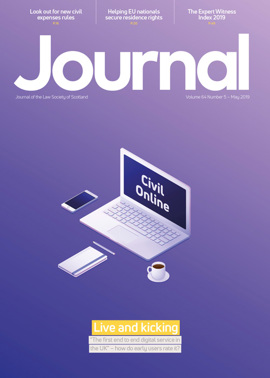For the elderly: how SFE works

Solicitors For the Elderly (SFE) is a group of solicitors and paralegals who specialise in providing support and advice to older people and people who may be vulnerable as a result of physical or mental fragility or incapacity. Each member spends at least 50% of their time working with older and vulnerable clients and has expert knowledge and experience which enables him or her to provide the best possible advice and support for their clients.
A national organisation, SFE has over 1,600 members across the United Kingdom, a growing number of whom are in Scotland, all of them fully committed to the SFE ethos of excellent client care, empathy, and building relationships of trust and respect. Our members have a wealth of experience and training which helps put people at their ease when dealing with complex, life changing issues.
SFE members practise active listening, openness and warmth, and empowerment in their relationships with their clients. They respect each client’s dignity at all times and understand the need for a holistic approach to problem solving. Following a plain English policy, they will always communicate in easy, understandable language and will explain any necessary legal terminology in a way that is accessible and appropriate for each client.
Members support each other by sharing best practice and experience through the members’ advice forum, and are supported by the organisation with training, technical updates, and news on market developments. SFE also promotes its fully accredited members through the website and with press coverage, as well as running national and regional events.
By ensuring a presence in reviews and planning in local government and legal bodies, and speaking out in the press, SFE is a voice for its members but also for the older clients members work with and for.
The Scottish scene
Lindsay Maclean, partner and head of the Personal Law department at Gibson Kerr, and Hilary Peppiette, consultant, are the joint regional directors for the Scottish branch of SFE.
Lindsay Maclean is also a member of the Society of Trust & Estate Practitioners and her work at Gibson Kerr includes wills, powers of attorney, adults with incapacity and guardianship orders, executry estates, inheritance tax and capital gains tax planning. She has a particular interest in dealing with the legal issues affecting elderly clients and in relation to the cost of care, both in the community and in residential homes.
Hilary Peppiette has 25 years of experience in advising older clients on matters such as wills, powers of attorney, and advance planning and is also an end-of-life doula (see Journal, October 2017, 24). She is a volunteer bereavement support facilitator with Marie Curie and conducts funerals. Her particular interests lie in supporting people to consider what matters most to them about their own journeys at the end of life, before and after death, and to have the best death possible.
The branch holds regular meetings as a way of networking with other solicitors working in this area of law in Scotland and invites speakers along to offer insights into various issues associated with advising older and vulnerable clients. The focus is often on the softer skills that are necessary when advising such clients, helping to make members better equipped to meet their clients’ needs and to ensure clients have fair access to the legal services they require. Recent speakers have included the former Public Guardian for Scotland, Sandra McDonald and Professor June Andrews, an international dementia expert.
The next meeting takes place on Thursday 30 May 2019 at Gillespie Macandrew’s office at 5 Atholl Crescent, Edinburgh EH3 8EJ, from 5.30-7pm. Andrew Senew from Home Instead will be discussing the best ways to navigate the care system, drawing on his experience of providing care services, integration of services and the system of self-directed support. Home Instead is a company providing care services for the elderly in their own homes, with the aim of helping clients to live independent fulfilling lives. The meeting will be free to attend and is open to SFE members and non-members. If you wish to attend, please email lindsay.maclean@gibsonkerr.co.uk to reserve a place.
In this issue
- Claiming under the advance payment scheme
- Time for a written constitution
- New form F9: worth the wait?
- Wedded to a matrimonial property regime
- Brexit divorce set to increase UK's “skype families”
- Corporate personality: Justice v Doctrine
- Reading for pleasure
- The Law Society of Scotland Expert Witness Index 2019
- Opinion: Judith Robertson
- Book reviews
- Profile: Michael Clancy
- President's column
- Is your legal data being held to ransom?
- People on the move
- Sign up – log in – action!
- Frozen out?
- Taxing times for litigators
- DNA analysis: when research just isn’t enough
- Brexit focus: EU citizen settlement remedies
- Why employers should report on wellbeing
- 3% – and then what?
- 1,000 days of mediation
- Barred from acting
- To name or not to name?
- Enter the “What I Think”
- Fixed penalties and fair trials
- Auto-enrolment: keeping employers on their toes
- Scottish Solicitors' Discipline Tribunal
- Vulnerable accused: a need for knowledge
- Burdens and who can enforce them
- Convener’s final bow
- Public policy highlights
- TCSP review update
- Westminster: answering the call
- Accredited paralegal practice area highlight: family law
- Accredited Paralegal Committee profile
- Nyona named star paralegal
- Ask Ash
- Moving nightmares part 2
- Complaints: seeking consistent practice
- Morally bankrupt?
- For the elderly: how SFE works
- Standing up to challenge






